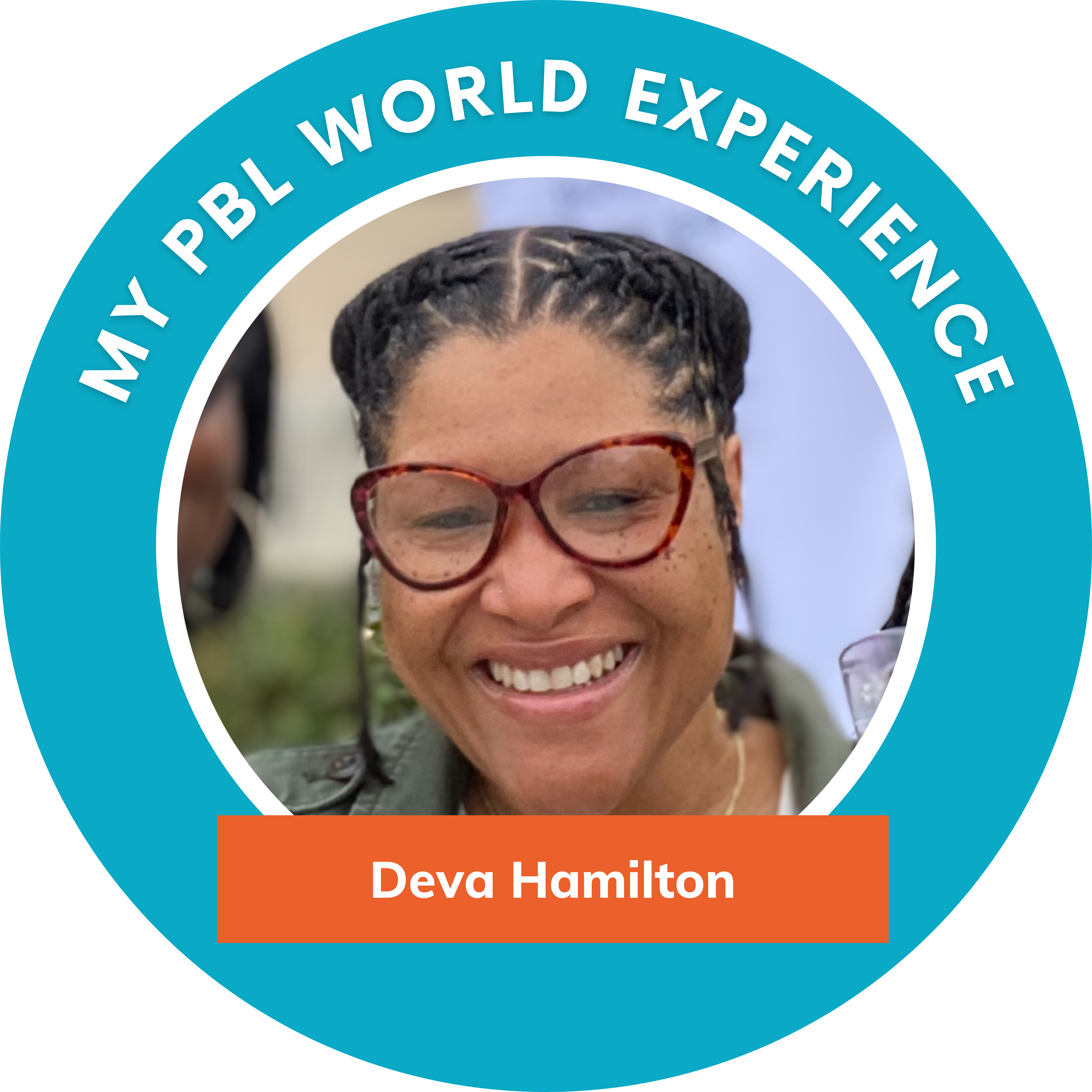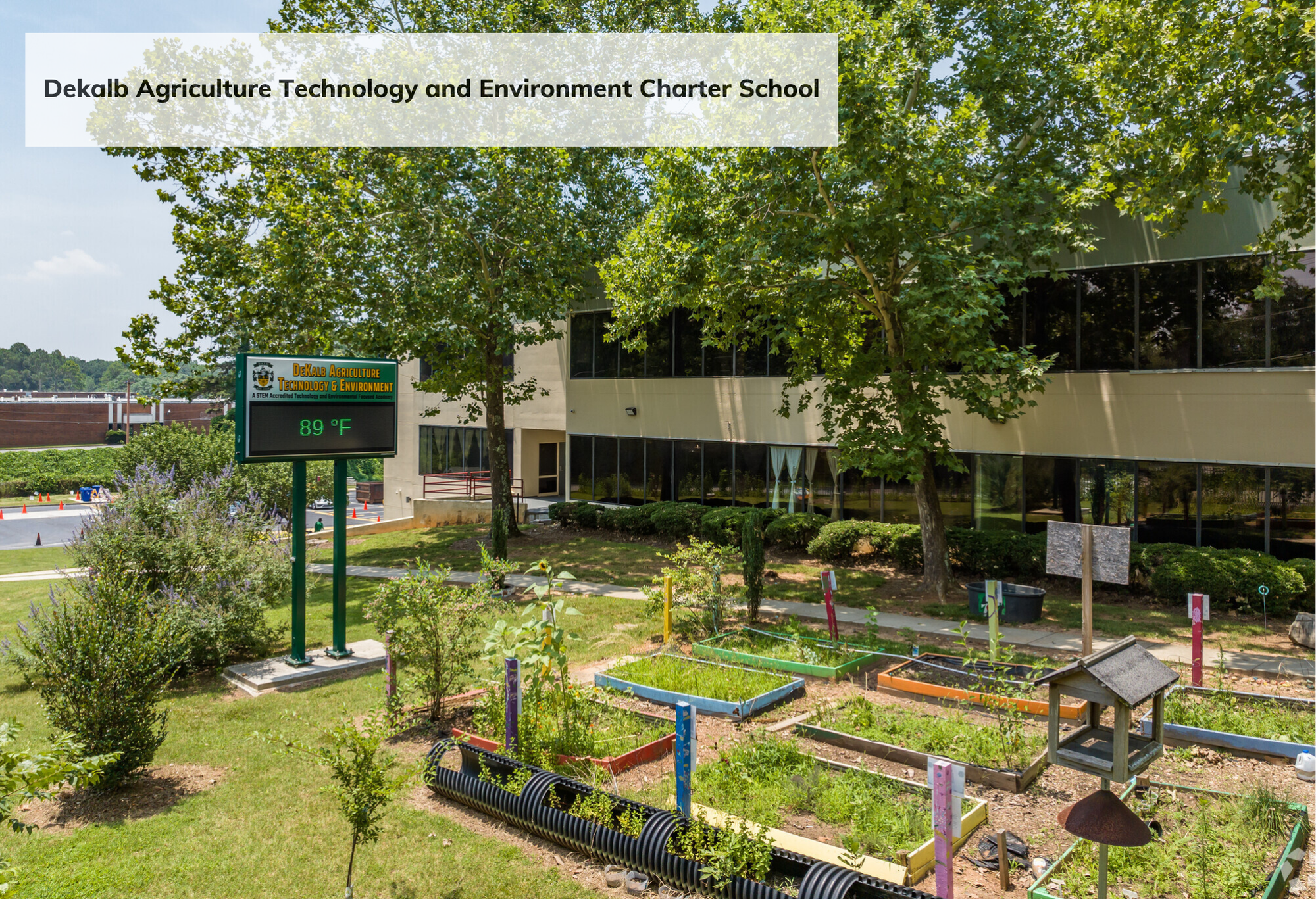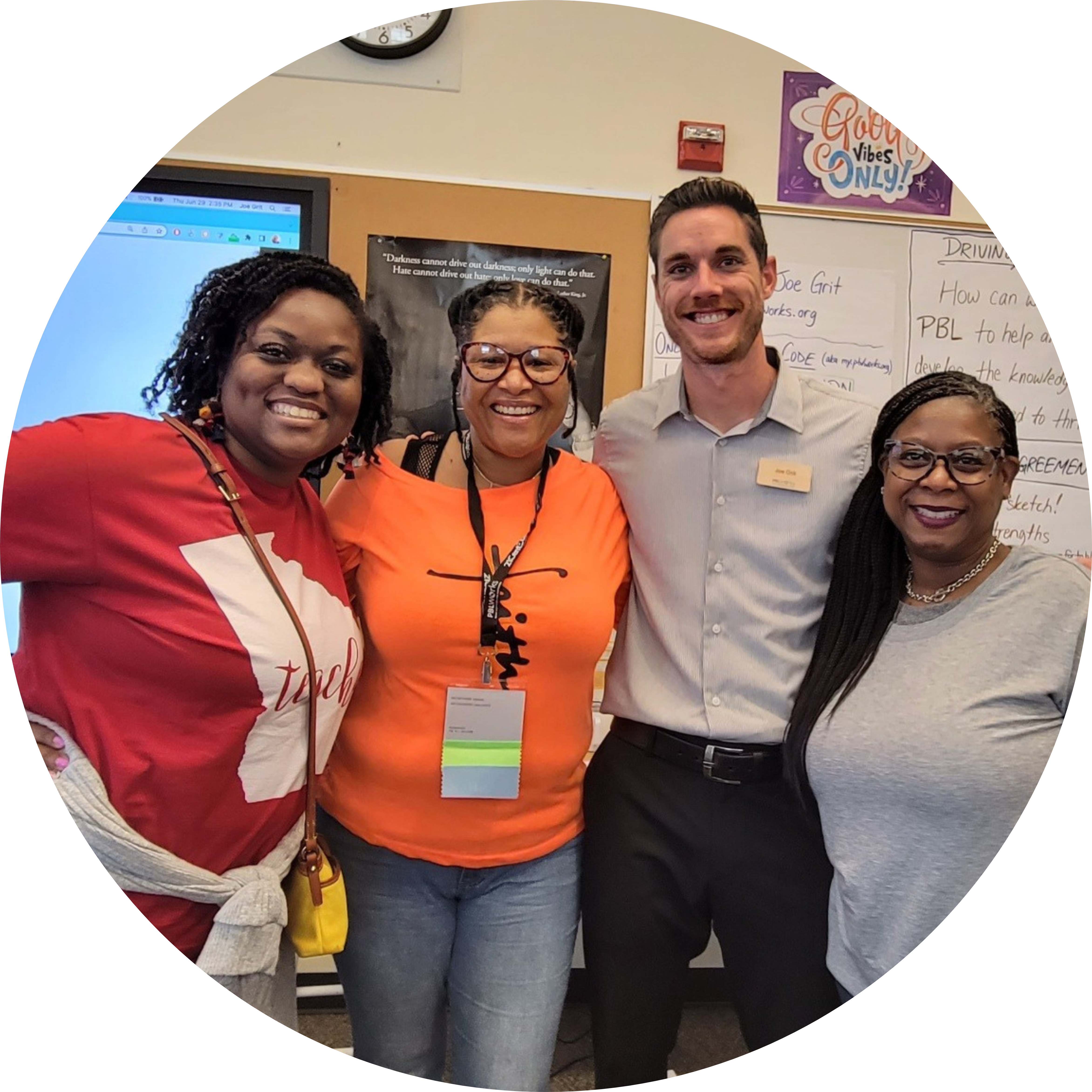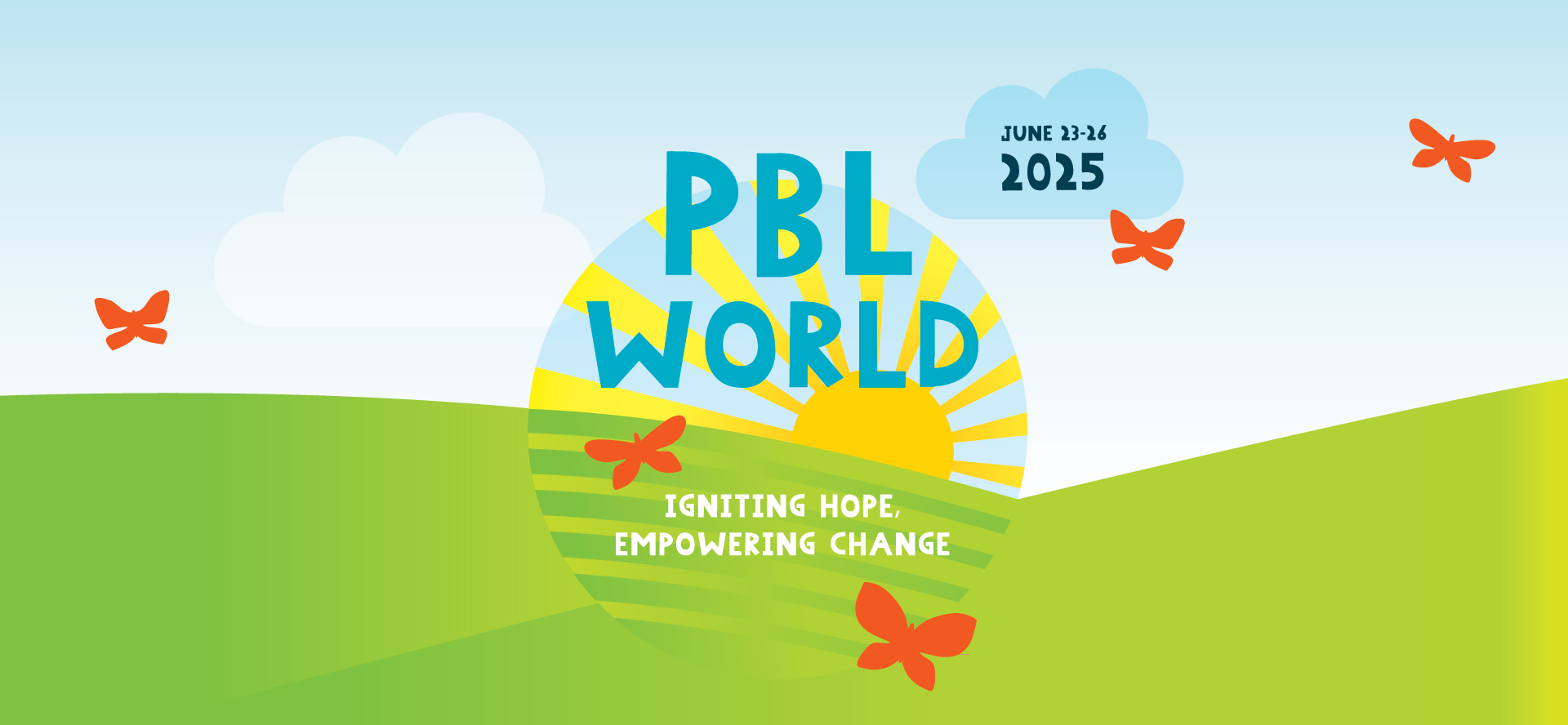
Tell us a little about you, your educational journey, and your school.
I’m Deva Hamilton, STEM coordinator at Dekalb Agriculture Technology and Environment Charter School. We are a Title I school. We serve about 800 students overall. Our Vision is Hands-On and Minds-on Learning. We have a certified farm. We have a greenhouse with an aquaponic system, a pond, and gardens. We have a pasture with goats, sheep, hens, and roosters, and we are actually getting ready for llamas in the upcoming school year. I’ve been here for over a decade, and I’ve loved it since day one. We are truly a family!

My career path in education wasn’t linear. I transitioned from a business background in administration and marketing, but I knew all along that I wanted to be an educator. Eventually, I mustered the courage to start my master's in education and faced the challenge of balancing full-time work with student teaching. A fortunate layoff from my insurance job coincided with my inquiry into student teaching, allowing me to substitute teach, which I loved. In January 2011, after passing my certification, I began teaching second-grade math and science at a K–8 STEM-certified school.
Over the years, I've taught multiple grades, served as a STEM coordinator, and led Project Based Learning (PBL) initiatives starting in 2016. Constantly evolving, I embraced new teaching methods and tools, always striving to make my classroom engaging and dynamic with valuable feedback from colleagues and administrators.
How did your journey with Project Based Learning begin?
Our Chief Academic Officer, Dr. Keidra Taylor, is a firm believer in a nontraditional approach to education. She’s open to what’s out there in the real world and wants our students to have hands-on and minds-on learning experiences.
In 2016, we had a conversation about initiating PBL in our context. We shared the same mindset of wanting to do things differently. I was all on board, started doing my research, and immediately connected with PBL! People say it’s work, but it’s not hard work for me. It’s what makes sense. We as educators also want to learn alongside our students and have fun in the classroom! And PBL creates spaces for that!
PBL World: How did you learn about PBL World?
A few years ago, I heard about PBL World, and I was instantly intrigued when I learned that it takes place in Napa Valley. So, I inquired about it with our leadership. Years later, Dr. Taylor, who is all about empowering staff, created the opportunity for us to go, inviting me and a classroom teacher.
We attended the PBL 101 workshop. We created our driving questions and fleshed out a project, and in the process, we became learners ourselves. Our facilitator, Joe Grit, was amazing! He gave us student choices, the opportunity to ask questions, and shared resources. He was so laid-back and created such a welcoming and balanced learning environment.

I came into the workshops thinking, “Will I be in lectures all day?” But it was nothing like that at all. The best part was collaborating with other people. We were able to critique each other's projects. Collaborating with others allowed me to learn about all the different ways teachers and schools approach PBL. You realize you can truly make PBL your own.
What did you take away from your PBL World experience?
Something that resonated during one of our sessions was someone highlighted that PBL is a lowercase p, a lowercase b, and a capital L. In other words, it’s all about learning. The project is fun because you don't realize you're learning all of your content through the project. But you cannot forget that L. I’ve held onto this since I first heard it. I tell people not to get lost in the project if it means not focusing on the L. Also, during my workshop, I felt like an artist and writer. I’m all of these—and more!
What prompted you and your team to return to PBL World?
Even before we left PBL World, we knew we would be back. The PBL 101 workshop is the prerequisite, and we are now ready for the PBL 201: Equity and Gold Standard PBL workshop, which focuses on fostering equity in the PBL classroom. I love that my chief academic officer chose to go on this journey again.
What advice do you have to give to a first-time PBL World attendee? Making the best of this experience is all about your mindset.
Go in with a truly open mind and understand that no matter what grade level or subject area you teach, you can apply the strategies you learn to it. These workshops aren’t a traditional professional learning experience. They’re not lectures, so participate and be open. Don’t worry about saying something you think sounds wrong or silly.
Anything else you’d like to add or share?
We left PBL World with this incredible booklet, An Intro to Project Based Learning for Parents. As we move forward with our PBL journey, we want all stakeholders (students, parents, educators, and the community) to go on this journey with us. It’s more than addressing the Georgia Professional Standards of Excellence; it’s creating a foundation for discussions and developing a shared vision and mission.

PBL World 2025: Join us at American Canyon High School in Napa Valley from June 23-26, 2025, to begin or continue your PBL journey with four days of transformative professional development. For more information, visit https://www.pblworks.org/pbl-world.
✉️ If you attended PBL World and it has impacted your teaching in transformative ways, reach out to Natalie at [email protected]. Your experience might be someone else's valuable inspiration. Join us in sharing the transformative power of PBL on teaching and learning—we can't wait to hear about your PBL journey!
